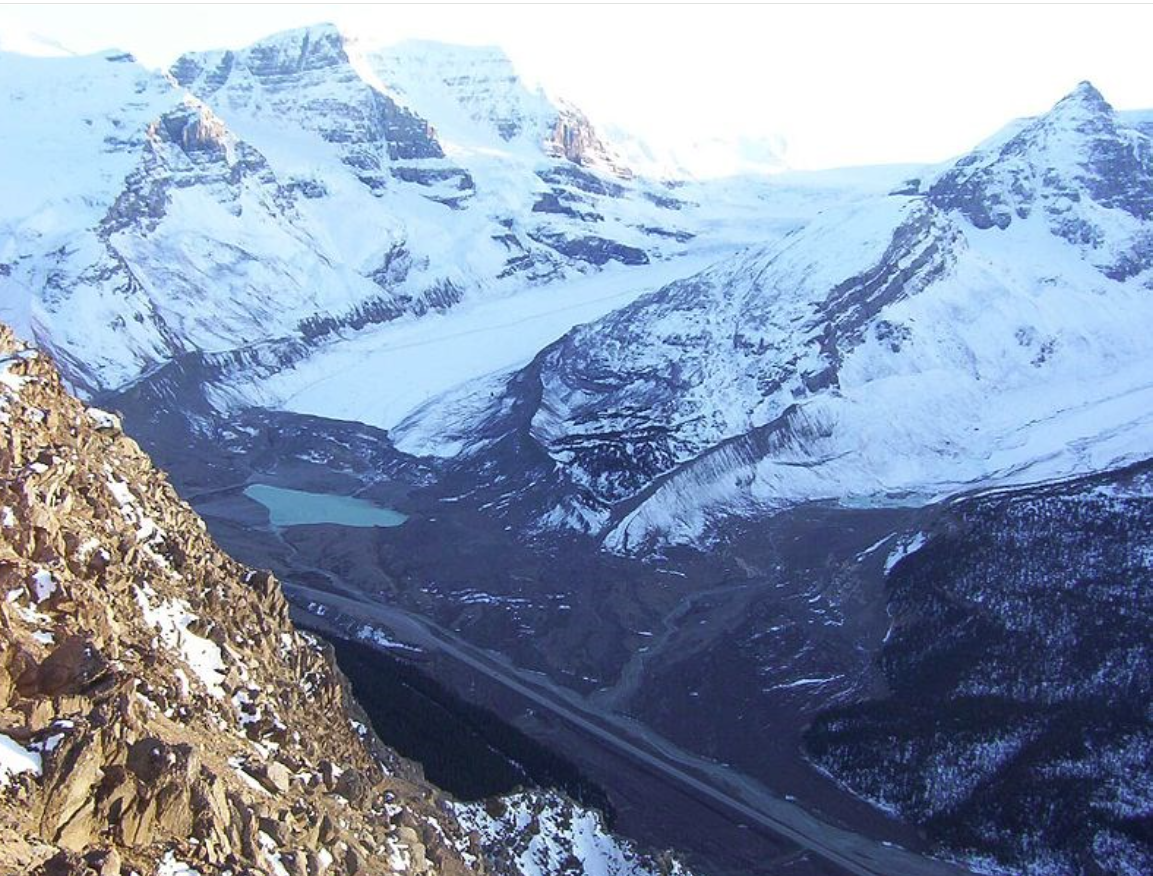 Glacier Retreat, Snowpack Loss Affect Major Rivers, Experts Say
Glacier Retreat, Snowpack Loss Affect Major Rivers, Experts Say
Rocky Mountain Outlook
Trent Wilkie
As of August 2025, according to the Canadian Drought Monitor, 39.5 per cent of Alberta was suffering from severe to extreme drought. While not a singular contributor, glacial recession — or glacier shrinkage — due to a rapidly warming planet plays a significant role.
From lower spring runoff to impact on the St. Mary and Oldman reservoirs, experts say glacial and snowpack loss could possibly contribute up to 80 per cent of the flow in major river systems like the Saskatchewan, Peace and Athabasca. These rivers are important for agriculture, municipal water and hydropower.
Jeffrey Crompton is a research scientist with the Geological Survey of Canada. Growing up in the Calgary and Canmore area, he spent a lot of time in the Rockies. That’s where he became fascinated by glaciers.
“Glaciers are incredible because they're not like plate tectonics, where you have absolutely no indication for what's moving around you,” Crompton said. “On human time scales, you can see how quickly these things are changing, so you know coming out of the Last Glacial Maximum (LGM).”
According to Crompton, the LGM is important because when dealing with such a large timescale, one needs a point of reference. The LGM occurred between 26,000 and 19,000 years ago, marking the height of ice sheet coverage on Earth, which significantly affected global climate and sea levels. It is with that number that we compare the growth and recession of glaciers.
“I don't think that we would be able to observe this change as tourists in the mountains very readily,” Crompton said. “But coming out of the Industrial Revolution, the glaciers are responding really quickly and you can go to the Columbia Icefield and see the recession markers from where the glacier was 5,000 years ago. And so while you can't see the glacier flowing in real time, you can see how far back it's moved.”
With this visual, scientific proof, it confounds Crompton as to why some of those in power still reject climate change. He said he thought we had moved beyond denial.
“It feels like a punch in the gut, you know,” Crompton said. “To be out there all the time watching this happen firsthand and seeing the effects and the consequences and knowing what's to come and knowing that we're actually under-predicting the worst-case scenarios. Then to hear politicians — politicians that are pretty far removed from that outdoor environment — to be making these claims, it really does feel like a punch to the gut.”
According to the Canadian Climate Institute, in 2023, 98 per cent of Alberta’s agriculture region was affected by drought, with crop insurance payouts hitting a record $326.5 million — triple the amount from 2021. Flash droughts are becoming more common, substantial wildfires are commonplace, and statistical trends have more than 40 per cent of global land area expected to experience year-round drying by the end of the century.
“So, I just keep my eye on the narrative,” Crompton said. “I watch it with curiosity and interest to see how the narrative changes through time. You know, it used to be denial that climate change happened at all. Then it was OK, climate change is happening, but it's not human-caused. And then it was OK, well, maybe it's human-caused, but there's nothing we can do about it. So, it's just like watching the stages of denial.”
While all this seems to lean in on the negative, Crompton still tries to have a sense of humor about it all. Reflecting on when he was doing his PhD work, he remembers trying to understand how the glacier slides across the bedrock and how the type of rock influences that motion, and what that does to the overall dynamic of the glaciers.
“It was pretty non-threatening for people when I could just tell them, like, hey, I'm trying to understand how glaciers move,” Crompton said. “I’d say that one of the things that we're seeing a lot of as these glaciers retreat — there is a lot of sand, which leads to a destabilization of the valley walls, and we're seeing some very large landslides in response to that.”
He points out they are a geohazardous consequence of deglaciation that people aren't as familiar with.
“Landslides — like, everybody can get on board with landslides,” Crompton said. “You know, nobody's feeling like that's a threatening topic for them politically.”